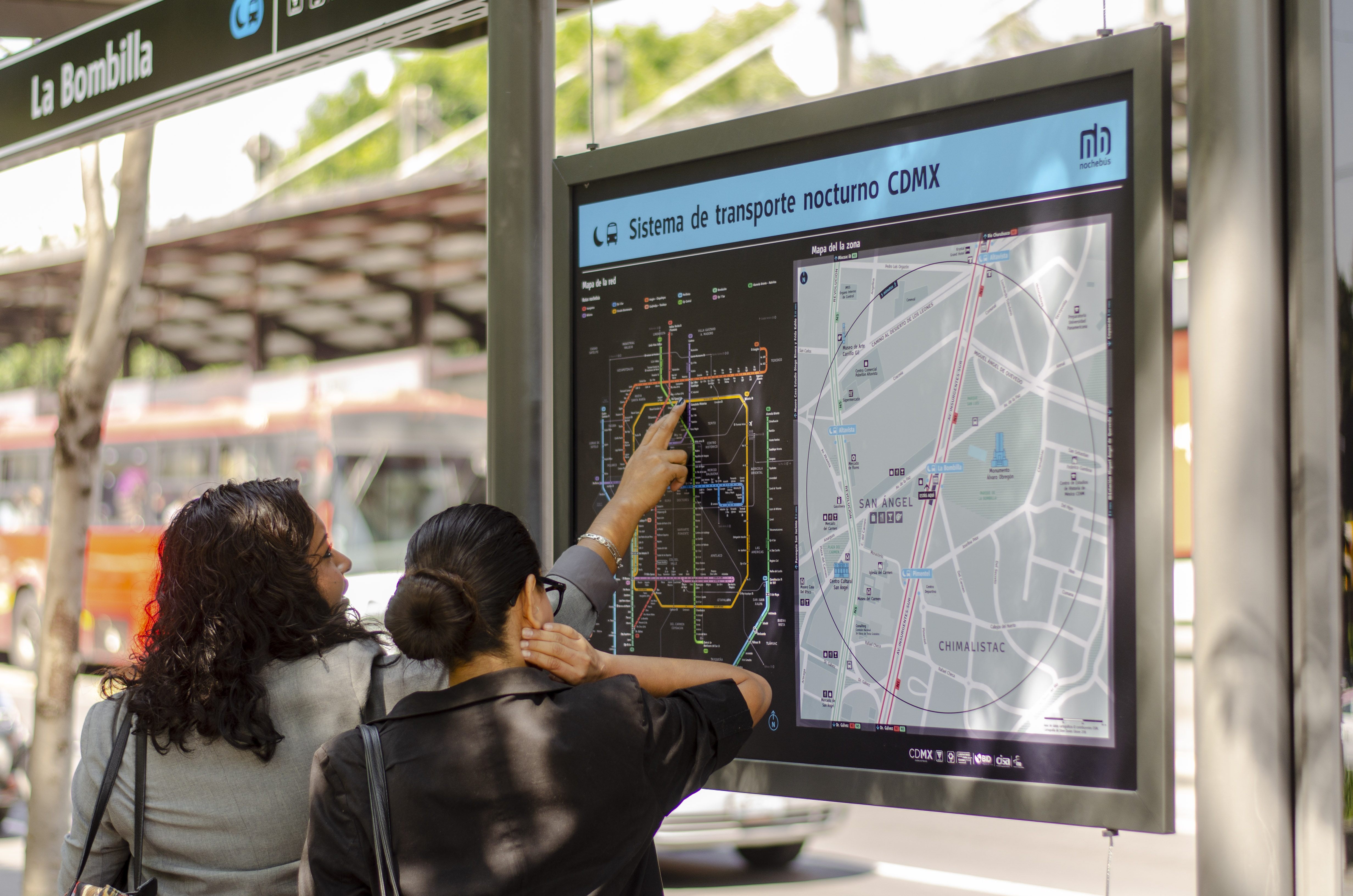On Friday 27 July 2018, the new head of Mexico City’s government, José Ramón Amieva, will launch a revitalised pilot corridor of the city’s night bus service, Nochebús. Jose will be accompanied by representatives from the Inter-American Development Bank (IADB) - who funded the project development, SEMOVI – Mexico City’s mobility agency, Laboratorio para la Ciudad - the city’s innovation lab, AEP – the public space authority, and the operators of Mexico City’s electric trolley bus system. Steer is delighted to have supported the development of this key project in the evolution of equitable and sustainable transport in support of Mexico City’s growing night time economy.
Mexico City’s night bus service operates from midnight till 5.00am and, with 15% of employees starting or finishing work in the early hours and many visitors or residents returning home after a night out, should be a vital asset for the city. However, a combination of poor service reliability, a lack of visibility and information, and concerns about personal safety had resulted in a service that delivers a poor customer experience, and that is only used by people with limited or no mobility alternative.
Steer was commissioned by the Inter-American Development Bank and Mexico City’s Innovation Lab to analyse service delivery issues across the network’s eleven routes with an emphasis on the Insurgentes Corridor, and to identify a package of measures that could be implemented in the short and medium term to improve the overall passenger experience and grow patronage.
A team of international and local Steer experts undertook a comprehensive analysis that included: engagement with existing and potential users to understand current service perceptions and barriers to use; a systematic evaluation of passenger environments at and around stops on Avenida Insurgentes; an international best practice review; and workshops with key stakeholders to understand their aspirations for the service and identify opportunities or barriers to implementation of improvements. Finally, we conducted an analysis of passenger characteristics and origin-destinations to understand the scale of demand that a revitalised service could generate.
Building on this analysis, the project team identified a series of practical recommendations that could be implemented on Avenida Insurgentes and replicated later on other corridors of the network. These recommendations formed the basis of a guidelines document adopted by the IADB and the Lab. Key recommendations were implemented to passenger environments along the length of Avenida Insurgentes aiming to improve the customer experience including service reliability, frequency, cleanliness and safety.
A key finding of the study was the need for a night bus brand and information system to help build user recognition, understanding and visibility. Steer was commissioned to develop these products. We started by designing a contemporary visual identity that acknowledges Mexico City Metro’s iconic brand (in its 50th anniversary year) yet is distinct and recognisable. We then created a suite of information products, including a schematic network map, local areas wayfinding maps, and templates for stop specific information - all delivered as part of a system brand manual. The Steer team subsequently trained the Lab in the use of the design templates to create the information products implemented along the length of Av Insurgentes.
We congratulate the Laboratorio para la Ciudad for their determination in promoting this project, the Inter-American Development Bank for financing it and CISA the bus operator for their participation. At Steer, we hope that the lessons learned from this work will be a source of inspiration and a model for other transport systems, such that we can continue to help transform our cities into more accessible and inclusive places for all.
Read more about our work on our projects page.

